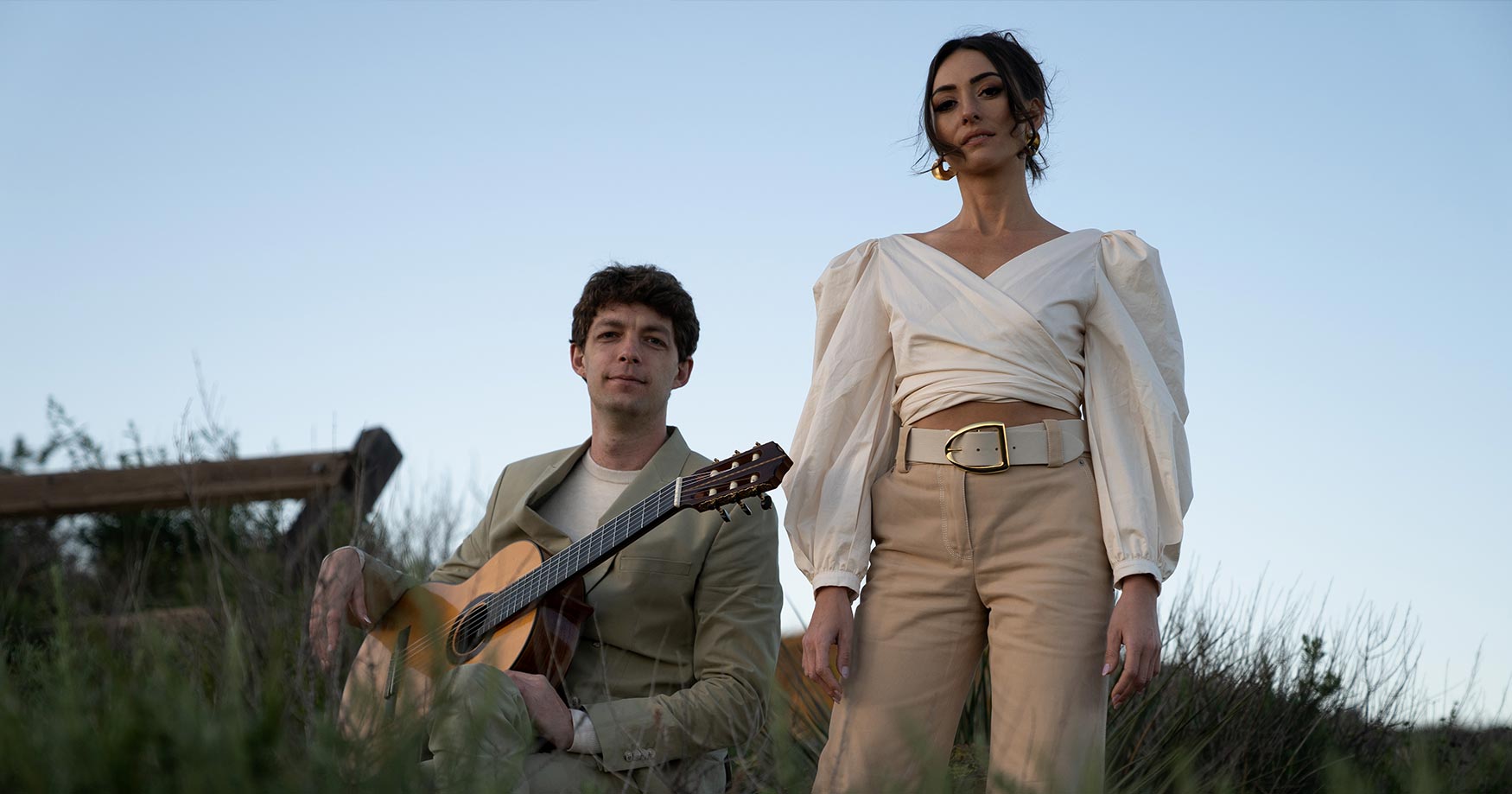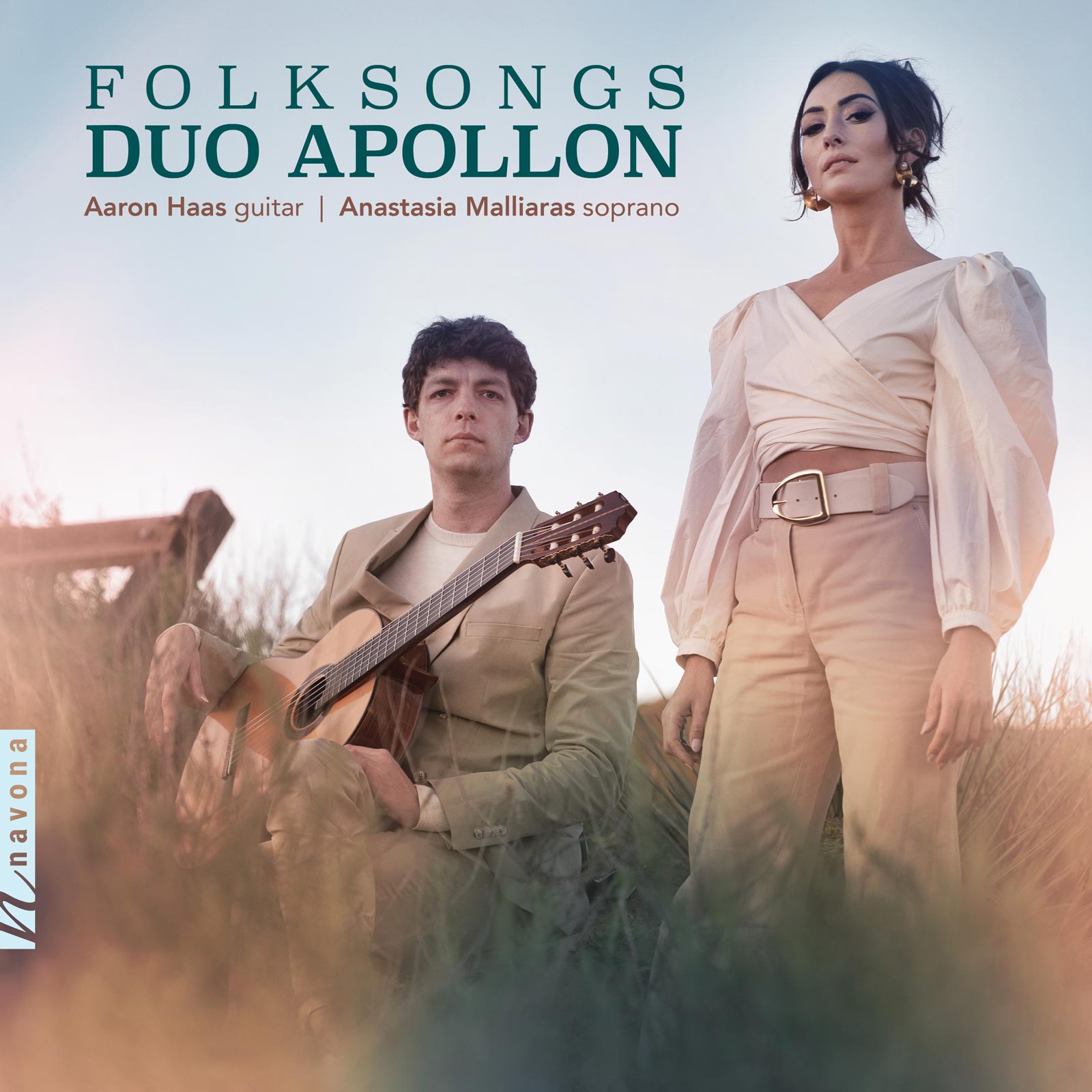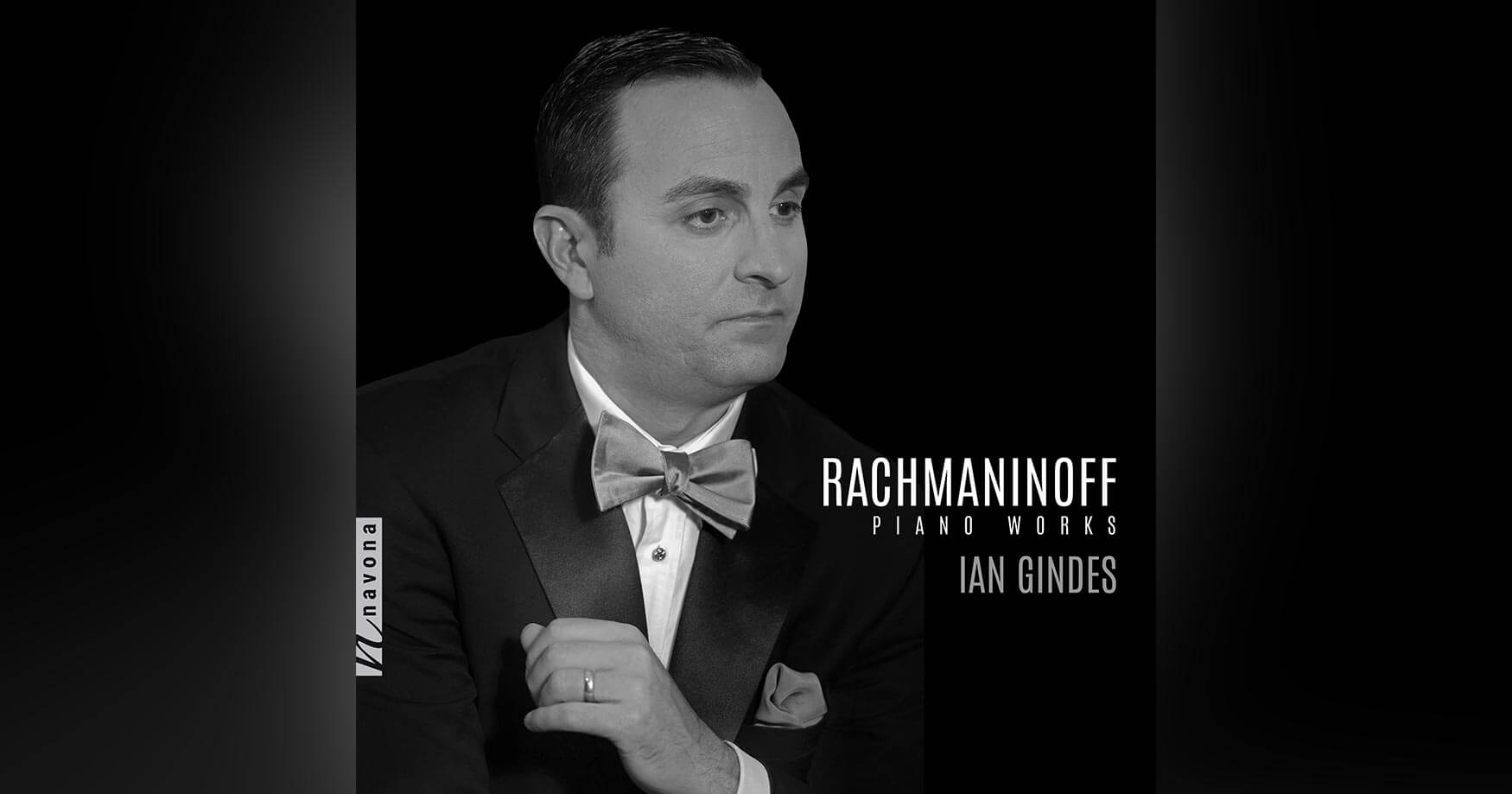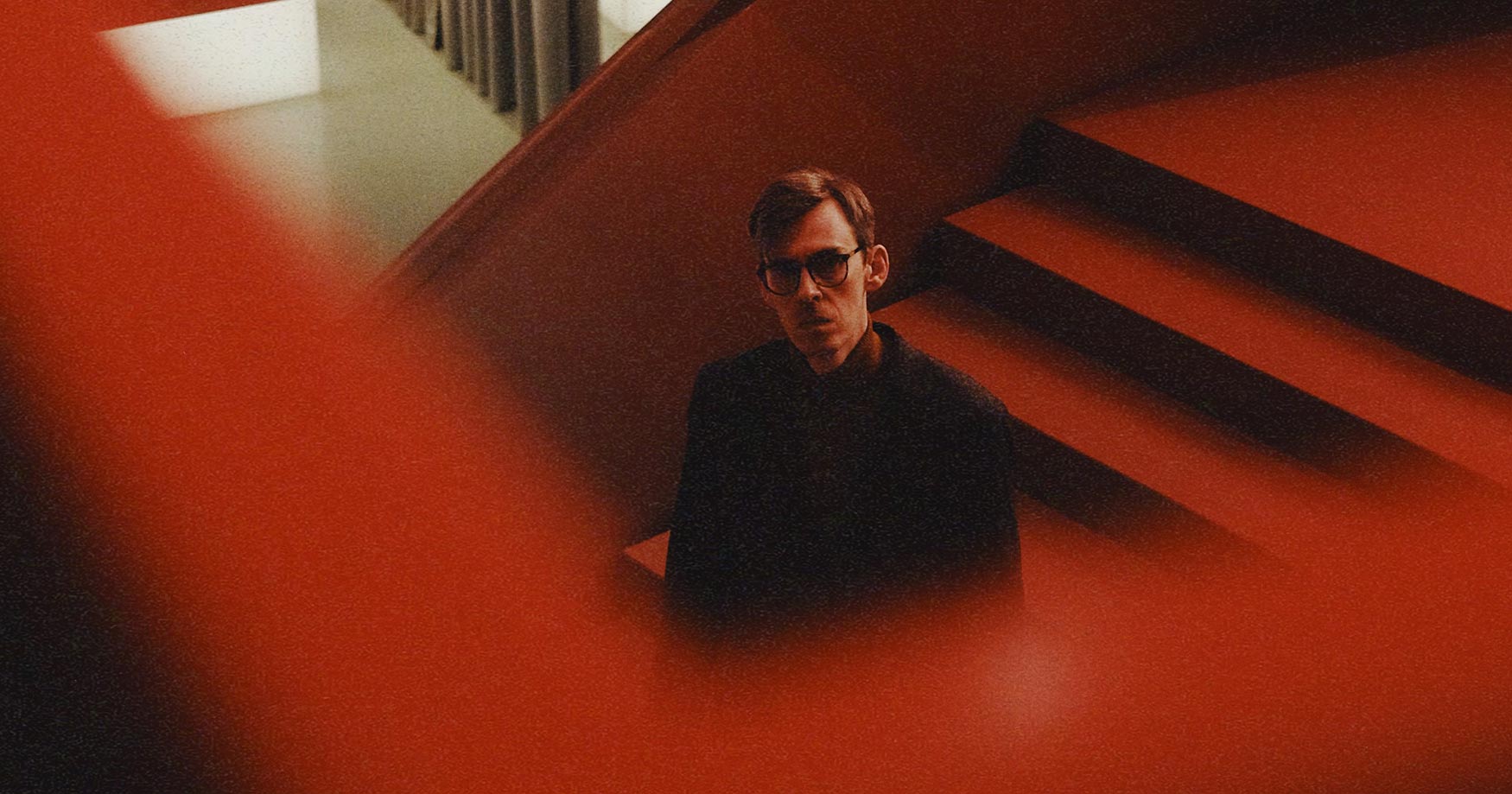On FOLKSONGS from Duo Apollon, soprano Anastasia Malliaras and classical guitarist Aaron Haas conjure up pastoral scenes that appeal both for their universally human and unique cultural expressions. The folk-inspired works of Maurice Ravel, Manuel de Falla, Benjamin Britten, and Mátyás Seiber shine here.
Today, Anastasia and Aaron are our featured artists in “The Inside Story,” a blog series exploring the inner workings and personalities of our composers and performers. Read on to learn how Aaron grounds himself before a performance, how Anastasia discovered the emotional message within her voice, and more…
Where and when are you at your most creative?
AH: It’s just any time I’m in a space of non-grasping and not knowing, free of any kind of hope or fear, just okay being here. It can be in nature, in my room, with friends, in a cafe, or performance hall. As a friend pointed out to me the other day, the opposite of being afraid isn’t being hard and stoic, it’s actually being creative and playful! It’s like being a kid again. And it helps to not only find that fearlessness within myself, but see it in other people and performers. It’s really as simple as listening from the heart instead of the head, as if the area around my heart was directly connected with my ears. When I do that, I completely fall in love with someone else’s playing. It’s intoxicating! Us classical performers are so familiar with the judging space. But as long as we’re in the habit of judging others, we’re in the habit of judging ourselves, and it’s all out of fear. So the more I let that go and just drop into the heart, the more I’m just naturally as creative and playful as I was when I was a kid.
What were your first musical experiences?
AM: My first musical experiences come from my maternal grandfather. He emigrated from Greece to the United States and carried with him the folk music traditions of his village where he worked as a shepherd. As a child, I was mesmerized by the sound of his voice and the clarinet. I would listen to him for hours and he would teach me these folk songs filled with words and stories about a life that was so different from the one I was living. As I am answering this question, I am sitting in his home in a tiny village in Greece. High up in the mountains, extremely remote, very far from the life I know in the United States. But as I look out over the balcony and into the field where he worked herding sheep and picking olives, I feel those songs so alive as I am able to see the setting for which they were written. I am able to understand the simplicity of their essence and — especially as a classical musician — it is a very grounding feeling.
How do you prepare for a performance?
AH: It’s become really important for me to start a performance by getting grounded. Gently grounded. Anxiety and adrenaline are very loud energies, and if I’m not balanced out by a kind of gentle appreciation for myself, my partner, and my music, it’s easy to become a spastic, nervous jumble of a human being! So I start by just feeling into my feet, then into the ground, and then into the space beneath the sensations of the ground, to this deep well of stillness that’s always here. That’s the baseline. From there the body relaxes, and I can open into the space around the body, the space in the room, the space around the mind and in between emotions and sensations of the body. It’s a space so vast I can’t find the edge, and so intimate that it pervades the entire felt experience of the body, almost down to a cellular level. So, I like to try to be both grounded and wide open, so the music can happen without too much of myself getting in the way. And if I’m lucky, the music just flows!
If you weren’t a musician, what would you be doing?
AM: The artistic spirit is very much alive in me and I can confidently say that if I wasn’t a musician I would still be working as some type of artist. I have always loved drawing, painting, dancing, playing instruments and writing, and I know if I dedicated my life to an art form besides singing I would be very happy. Because of this deep appreciation of various artistic mediums and an understanding of the needs to communicate in different ways, I value inter-artistic collaboration. This is actually one of the reasons that I am drawn to opera! So many different art forms must come together in order for an opera to happen — singers, instrumentalists, composers, set designers, lighting designers, directors, conductors, costume designers, wig designers, sometimes even dancers. Speaking of dancers, one of my favorite collaborations is with the American Contemporary Ballet in Los Angeles. Watching dancers express and communicate through the movement of their bodies is fascinating and to be part of those experiences as a singer brings an even deeper understanding to me of my own craft.
What’s the greatest performance you’ve ever seen, and what made it special?
AH: The folk singer Odetta came to my undergrad college, Skidmore College, about a year before she died. It was a free concert, and the small venue she sang in was packed. I barely knew who she was, but decided to go anyway. I got to the hall and there was only standing room left. It was just her and a pianist, but her courage and freedom were totally and utterly contagious. I think what impressed me the most was the power her voice carried, even at such an advanced age. She started by singing This Little Light of Mine and it was performed so inwardly touching and outwardly playful that it was like the whole space lit up from within. She had no fear, nothing but her voice and love and courage, and gave so much musical sensitivity and contour to each line she sang. She also sang the most heart-rending version of House of the Rising Sun I’ve ever experienced. It was unforgettable and left a huge imprint.
What musical mentor had the greatest impact on your artistic journey? Is there any wisdom they’ve imparted onto you that still resonates today?
AM: I had the immense privilege of learning from American soprano Cynthia Haymon during my undergraduate studies at University of Illinois at Urbana-Champaign. Cynthia single handedly shaped the trajectory of my singing journey by teaching me how to explore the depths of my voice with patience, curiosity, and dedication. Under Cynthia’s guidance, I truly began to discover the entirety of my voice — not limited to the timbre but also to find the emotional message that I want to convey through the expression of sound. Her technical teachings live in my voice and the process of vocal exploration that she so graciously passed down to me are part of my practice routine.
Explore Duo Apollon’s Latest Release
FOLKSONGS
FOLKSONGS is available now from Navona Records. Click here to visit the catalog page and explore this album.
The views and opinions expressed in this post are those of the artist and do not necessarily represent or reflect the views and opinions held by PARMA Recordings LLC and its label imprints, subsidiaries, and affiliates.




